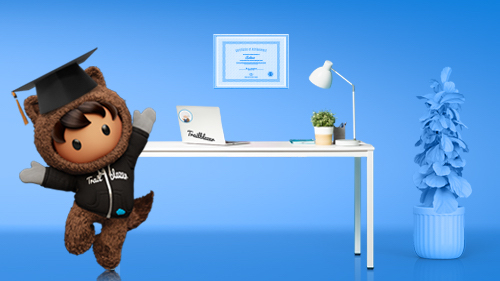
Get your FREE 30-day trial.
Please complete all fields.
Expectations for a corporation and its leaders are changing. Candidates, customers, and communities now want to see that a corporation has values that are aligned with their own. This is especially true for the next generation: PwC found that millennials are 5.3x more likely to stay with an organization when they feel a strong connection to the organization's purpose.
This new landscape has created a dilemma for leaders who haven't examined their own values. The simplest solution may seem to be that someone just adopts their company's corporate values as their own. But, that approach creates a dissonance between what someone truly values and what they say they value, which results in leaders who are uncomfortable, stressed, and inauthentic.
At the rate that Salesforce is growing and innovating, we need our leaders at their best, which is why our talent development team created a new leadership program called Leading Ohana (“Ohana” means family in Hawaiian and represents an idea central to our company's ethos). Leading Ohana aims to help our executives find their personal values so that they can be more authentic leaders. This takes investment and courage from Salesforce.
Over the course of a year, Leading Ohana participants take part in individual reflection, peer coaching, meaningful volunteering, and more. Like a family, the facilitators at Leading Ohana don't hold back, peeling back a leader's myths and inauthenticities that may have built up over the years.
The four questions that Leading Ohana asks may seem simple, but they can help bring about massive, positive changes for the leader and their families, colleagues, customers, and communities:
Halfway through this year's Leading Ohana, we're excited by what we've seen and are excited to continue to evolve and shape the program through the next two modules.
We believe that encouraging our leaders to discover and adopt their personal values will help Salesforce maintain its status as one of “100 Best Companies to Work For” and the “World's Most Innovative Company.” Leading Ohana will help blaze a path forward.
 Angela McKenna is the SVP Global Talent Development at Salesforce. With more than 15 years in the field, she leads Salesforce's talent development team, driving learning and development within the company. She earned a bachelors degree from the Galway-Mayo Institute of Technology, an MBA from the University of Birmingham and a Professional Certificate in Coaching from the Henley Business School.
Angela McKenna is the SVP Global Talent Development at Salesforce. With more than 15 years in the field, she leads Salesforce's talent development team, driving learning and development within the company. She earned a bachelors degree from the Galway-Mayo Institute of Technology, an MBA from the University of Birmingham and a Professional Certificate in Coaching from the Henley Business School.